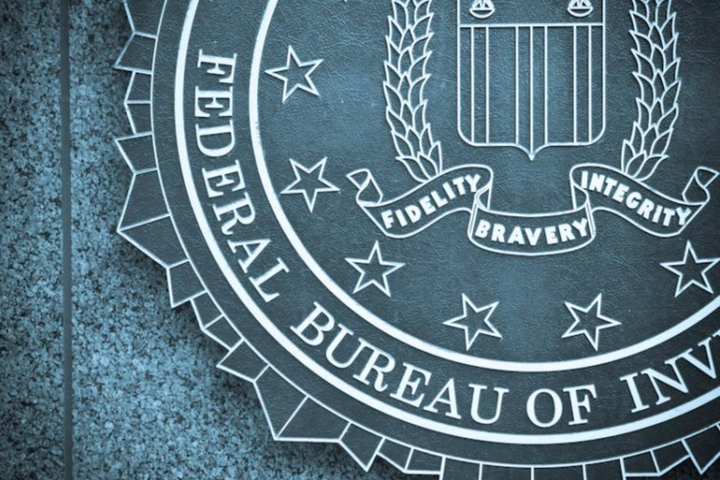US Judge Upholds First Amendment, Dismisses Lawsuit Against Palestine Chronicle
The lawsuit was brought by a former Israeli hostage.

A federal judge dismissed a lawsuit that was filed by former Israeli hostage Almog Meir Jan against the People Media Project and the Palestine Chronicle, the news organization which the nonprofit operates.
Jan claimed [PDF] that the Chronicle knowingly employed Abdallah Aljamal, an alleged Hamas operative who held him prisoner for 246 days, and that the outlet provided Aljamal a “platform to write and disseminate Hamas propaganda, ultimately subsidized, through its status as a tax-exempt charitable organization,” by United States taxpayers.
However, Judge Tiffany Cartwright of the U.S. District Court for the Western District of Washington concluded [PDF] that Jan had failed to provide any evidence that the Palestine Chronicle or the People Media Project knew that Aljamal “was a Hamas operative or involved in acts of terrorism.”
Publishing articles by Aljamal was also protected by the First Amendment of the U.S. Constitution.
The lawsuit was filed under the Alien Tort Statute (ATS), which was adopted in 1789. As the Congressional Research Service recounted, the U.S. Supreme Court has imposed limits on the range of claims that can be pursued by non-U.S. citizens in order to shield American corporations from liability. However, beginning in 1980, the ATS developed into a “prominent vehicle for foreign nationals to seek redress in U.S. courts for injuries caused by human rights offenses and acts of terrorism.”
Dr. Ramzy Baroud, the publication’s longtime editor-in-chief, and John Harvey, who manages the Palestine Chronicle and sits on the board of the People Media Project, were also sued by Jan. They, along with the Chronicle and the People Media Project, sought to persuade the court to dismiss the case.
“Defendants do not contest that the underlying torts committed against Jan by Aljamal and Hamas—the kidnapping and imprisonment of a civilian hostage—are international human rights violations that are actionable under the ATS,” Wright noted.
But Jan "did not allege that Defendants knew Aljamal was holding Israeli civilians hostage; that he had participated in any acts of terrorism, related to October 7 or otherwise; or even, critically, that Aljamal was a Hamas operative in the months following the October 7 attacks.”
If Jan could amend the lawsuit with “additional facts” that would prove “accomplice liability,” then the judge contended that the former hostage might reasonably have a sufficient claim against the defendants. The court granted Jan “leave to amend his complaint” by February 21, meaning he may resubmit it if he has any supporting evidence.
Significantly, Wright upheld the First Amendment and found that the articles published by the Chronicle were “shielded” because they involved “matters of public concern.”
Jan’s lawsuit went beyond the allegations related to kidnapping and imprisonment to assert that Aljamal was a propagandist for Hamas, that the Chronicle had “aligned” its mission and content with the group, and that the Chronicle was disseminating “propaganda” to U.S. readers. This constituted “material support” for a “designated foreign terrorist organization.”
Wright was exceptionally clear in her rejection of this serious yet unreasonable allegation. “Many of the positions taken by the Chronicle, such as highlighting the deaths of Palestinian civilians and criticizing Israeli airstrikes, have been echoed by countless news organizations, protesters, and political leaders around the world.”
“These articles do not cross the line from protected speech to inciting or preparing for unlawful activity. Nothing in the complaint alleges that Defendants advocated for, incited, or planned specific human rights violations.”
Wright added, “Even taken as true, Jan’s allegations that the articles unfairly characterize or falsely report Israel’s military actions do not change the protected nature of political speech.”
After three former hostages, including Jan, claimed that Aljamal had been their captor, there was an effort to tie him to Al Jazeera in order to bolster the Israeli government's ban against the news network. CNN largely debunked this campaign.
The National Jewish Advocacy Center, led by Mark Goldfeder, and attorney Douglas Schoen, who represented President Donald Trump during his second impeachment trial, represented Jan. Goldfeder backs the U.S. Department of Education’s investigations into “antisemitism” on university campuses as well as the deportation of students who protest against the Israeli government.
Schoen was Jeffrey Epstein’s defense lawyer when Epstein was accused of sex trafficking, and he was elected to chair the Zionist Organization of America in 2021. The organization supports annexation of the West Bank, especially through settlements, a clear violation of international law.
In the complaint, the People Media Project’s “tax-exempt charitable” status as a 501c3 was singled out to assert that U.S. taxpayers were “subsidizing” the spread of “Hamas propaganda.”
The lawsuit seems aligned with a push by pro-Israeli government lobbying groups to pass the “Stop Terror-Financing and Tax Penalties on American Hostages Act," a bill that would strip an organization of their nonprofit status if the U.S. Treasury Secretary deems that the entity is a “terrorist supporting organization.”
“A coalition of 354 civil liberties, religious, reproductive health, immigrant rights, human rights, racial justice, LGBTQ+, environmental, and educational organizations,” according to the ACLU, opposed the bill, which in 2024 passed in the U.S. House of Representatives but not in the U.S. Senate.
The organizations warned in a letter to U.S. House leadership that the bill dubbed the “nonprofit killer” bill would “grant the executive branch extraordinary power to investigate, harass, and effectively dismantle any nonprofit organization—including news outlets, universities, and civil liberties organizations like [the ACLU]—by stripping them of their tax-exempt status based on a unilateral accusation of wrongdoing.”
“The executive branch could use this authority to target its political opponents and use the fear of crippling legal fees, the stigma of the designation, and donors fleeing controversy to stifle dissent and chill speech and advocacy.”
"And while the broadest applications of this authority may not ultimately hold up in court," the coalition adde, "the potential reputational and financial cost of fending off an investigation and litigating a wrongful designation could functionally mean the end of a targeted nonprofit before it ever has its day in court.”
The proposed bill has already had a chilling impact and convinced nonprofits to take steps to curtail risks to their organization during President Donald Trump’s administration.
If the legislation became law, it would remove the need for lawsuits like the one brought against the Palestine Chronicle and the People Media Project. Pro-Israel groups could simply request that the U.S. Treasury Secretary revoke a particular organization's tax-exempt status through their favored senator or representative. (This happened to the People Media Project in June 2024).
No longer would any individual or group have to worry about a judge dismissing their claims due to the First Amendment. A broad swath of alternative and independent media publications, including The Dissenter Newsletter, would be vulnerable to attacks on their freedom to publish articles about contentious issues that are of public interest.




Comments ()